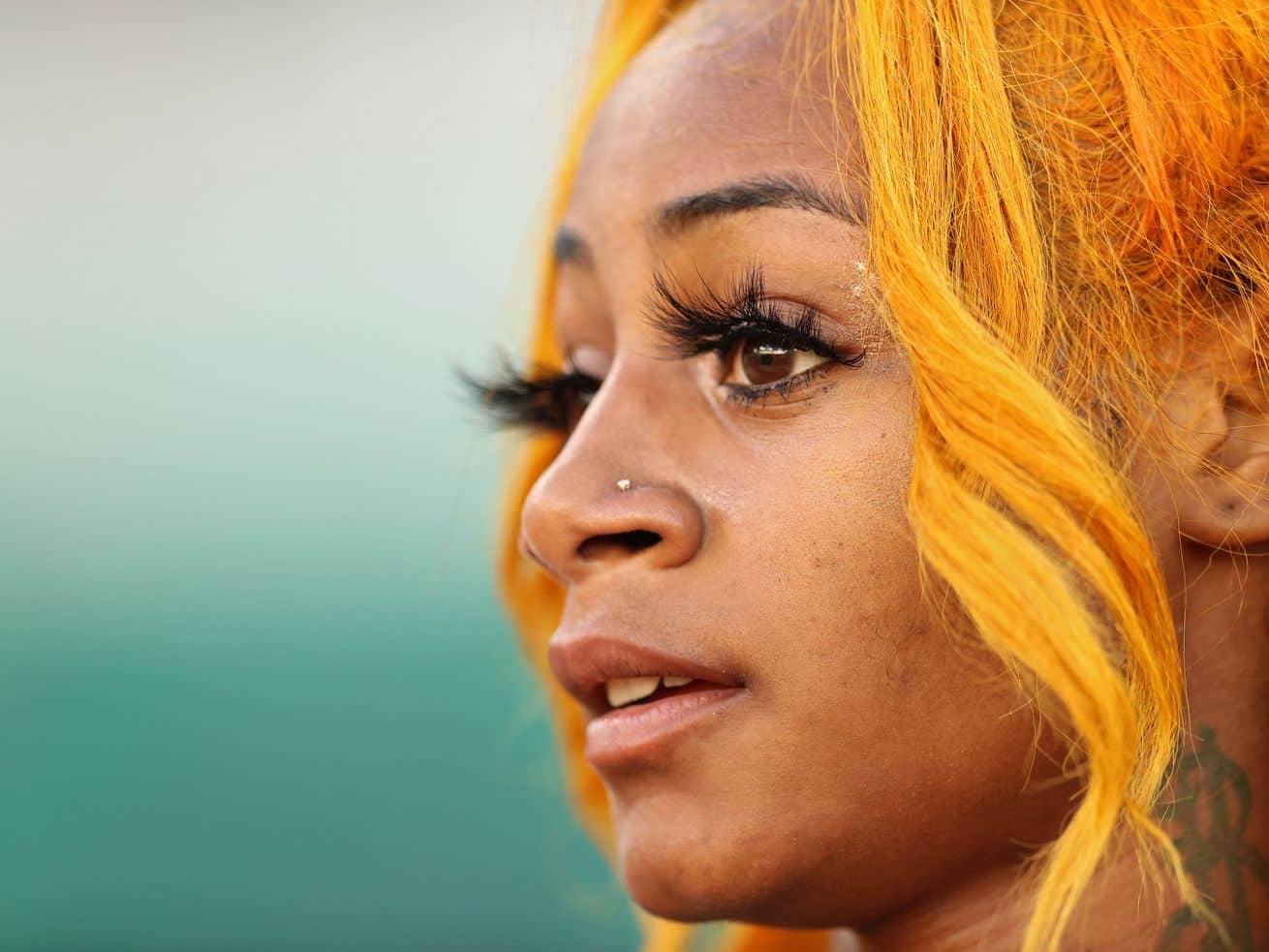Public attitudes around marijuana have shifted. Policy at all levels is taking time to catch up.
What would have happened if Sha’Carri Richardson were suspended from the Olympics for marijuana use in the 1980s?
In the era of Nancy Reagan’s “Just Say No” mantra, as the country barreled further into its war on drugs, much of the public likely would have backed the move to block the sprinter from competing after a failed drug test. Politicians on the right and left, many of whom worked together to enact punitive anti-drug laws, would have said the suspension sends the right message to the public about the dangers of drug use — while news shows hosting these politicians’ messages cut to “This Is Your Brain on Drugs” commercials showing an egg frying on a pan.
The story is very different today. Prominent figures on the left and right, ranging from Alexandria Ocasio-Cortez to Donald Trump Jr., condemned the decision. For Americans now living in states where marijuana is legal (including Oregon, where Richardson used it), the question is obvious: Why should this drug get anyone banned any more than other legal recreational substances, such as alcohol or tobacco? Even President Joe Biden, who as a senator helped write anti-drug laws in the ’80s and has taken a more conservative stance on marijuana legalization, suggested — while also acknowledging that “the rules are the rules” — that the rules should change.
Yet Richardson remains suspended, making her the latest victim of the global war on drugs.
There’s no good evidence that marijuana enhances a sprinter’s ability to compete — pot, after all, is not exactly known for making people faster or more energetic. As a founder of the World Anti-Doping Agency (WADA) told the Washington Post, marijuana’s inclusion as a banned substance was rooted in the fact that it was, and still is, illegal in much of the world.
“We were a little diffident about saying, ‘Even though these things are prohibited by criminal law, we don’t care,’” Dick Pound, also a member of the International Olympic Committee, said. “That just looked bad. But I think as thought has been given to these things over the years, they’re really not performance-enhancing.”
In fact, the US over the years has pledged financial support to the Olympics to help wipe out drug use, both performance-enhancing and recreational, from the competition. The White House drug czar under former President Bill Clinton, Barry McCaffrey, was explicit: “We raise Olympic athletes up on international pedestals for all the world’s children to look up to as role models — it is vital that the message they send is drug-free. The goal of this whole effort must be to prevent Olympic medals and the Olympic movement from being tarnished by drugs.”
To put it another way: The war on drugs — which was fostered by US foreign policy and also led to international treaties that still ban recreational marijuana use — pushed the influential WADA to prohibit recreational marijuana use among athletes, a ban it continues to enforce.
The problem for the Olympics is that attitudes around marijuana have shifted dramatically over the past few years. Eighteen states and Washington, DC, have legalized marijuana for recreational use. Canada and Uruguay have also legalized cannabis, even as it puts them in conflict with international law; other countries are considering similar moves, with several dozen already legalizing marijuana for medical uses. In many nations, including in the US, public opinion is strongly behind these changes.
The Olympics have now been put in a position of effectively condemning something that much of the competition’s viewership no longer rejects and, in fact, would like to see their governments relax the rules around. Richardson is not just a victim of the war on drugs: She’s a victim of an approach that no longer matches much of the public’s views of drugs.
Americans’ views toward marijuana have softened
It really can’t be understated how quickly views around marijuana have changed in such a short time.
One decade ago, marijuana wasn’t legal anywhere in the world — not even in the Netherlands, which takes a soft approach to marijuana but technically still prohibits it. But then Colorado and Washington state legalized marijuana, opening the floodgates to a broader movement. Since then, 16 other states have followed suit, as well as the nations of Canada, Uruguay, and, perhaps soon, Mexico.
In the US, public attitudes have often been ahead of the change. In 2000, just 31 percent of the country backed legalization while 64 percent opposed it, according to Gallup. By 2020, the numbers flipped: In the most recent Gallup poll on the topic, 68 percent of respondents supported legalization and 32 percent were against it.
It is, after all, voter-approved initiatives in Colorado and Washington that enabled the first two US states to legalize.
This support extends to Republicans, who typically take more conservative views on drugs. Gallup found that a slim majority of Republicans supported marijuana legalization in 2017, 2018, and 2019; a majority were opposed to it in 2020, but the difference was within the margin of error, and a sizable minority of 48 percent still backed it. Pew also found a majority of Republicans — 55 percent — backed legalization in 2019.
And of the four Republican-dominated states where marijuana use has come up to a vote, it’s won in three: Alaska, Montana, and South Dakota, losing only in North Dakota. Marijuana legalization is 3-1 in solid red states.
Marijuana remains illegal at the federal level. But even that stands to change in the near future as public opinion moves ahead rapidly, and more prominent Democrats like Chuck Schumer and Bernie Sanders introduce legislation to end federal prohibition.
Why the shift? There are many likely explanations: The failure of war on drugs to stop widespread drug addiction (see: the opioid epidemic) and backlash to racially uneven, punitive policies have left Americans wanting a new approach. The public now tends to view marijuana use as not so bad, or at least not as harmful as using alcohol or tobacco. The internet likely sped up many of these conversations, as well as experiments around legalization that began with medical marijuana and have now spread to recreational use.
Some sports leagues reflect this change, with the NFL and MLB relaxing punishments for athletes who test positive for the drug. But while the Olympics and the WADA have raised the banned threshold for marijuana to genuinely high levels, it still suspends athletes who surpass that limit, and marijuana was the ninth-most flagged drug in 2019.
It’s in this context that many Americans and their leaders have viewed the suspension of one of their athletes over marijuana as absurd.
The reaction, however, hints at a potential sign of hope: While Richardson is the latest victim of the war on marijuana, she may soon be among its last. Because with the pace of change happening around the world regarding cannabis, it seems likely that suspensions like hers could soon become a historical footnote — a reflection of an era gone by when the world tried an overly punitive approach to a relatively harmless drug.
Author: German Lopez
Read More



